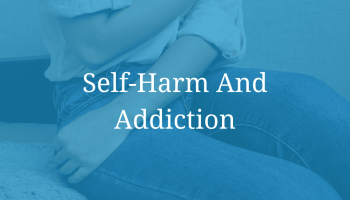
Understanding Aftercare
Addiction is a complex, progressive disease that can often require intensive care to be properly addressed. Multiple areas of a person’s life contribute to the development of an addiction, and no two cases are ever the same. After initial addiction treatment, supportive mechanisms that address all areas of life should be put in place to maintain a healthy recovery.
Aftercare, or continued care, is a term often applied to this stage of treatments and services, which are typically available after completing addiction treatment. While higher levels of care are typically performed within a more restrictive environment, like inpatient treatment, aftercare is done on an outpatient basis.
Aftercare is an incredibly important part of addiction recovery, yet it is often overlooked in the early stages of sobriety. Understanding why aftercare is important and how it can help promote meaningful sobriety is vital to long-term recovery.
The T.E.A.M. Approach To Aftercare
Aftercare may include additional evaluations, outpatient therapies, psychiatric medication management appointments, medical treatments, attendance in support groups, working with a sponsor, case management, recovery or sober residential living, or even continued partial hospital or intensive outpatient programming.
As the Medical Content Director for Addiction Center, as well as a physician and addiction specialist, I coined the acronym T.E.A.M. to provide an easy way to help patients remember and guide them as to what areas of life and services they should consider once they complete early treatment. The T.E.A.M. acronym for early recovery support stands for the following: Therapy, Environment, Association, and Medication.
T:
When embarking on the journey of early recovery, consider engaging in therapy and treatments to help address unresolved underlying or associated psychological problems that may have served as risk factors for one’s substance use disorder or are now the result of one’s use.
E:
The environment is equally important. Environmental changes need to occur, placing one in the healthiest space to maintain sobriety. This may entail early identification of persons, places, things, and situations that contributed to addiction or may have acted as triggers. These environmental triggers often have developed psychological associations with drug abuse and need to be removed. Although this can be difficult, this is important, as these factors without change can be a big risk factor for relapse.
A:
A third part of the acronym is the A in T.E.A.M., standing for association. This means community and association with healthy people. Attendance of support groups is a great way to help meet those who are in similar recovery mindsets, those either just starting the journey, or others who bring years of sobriety experience to the table.
M:
Lastly, the M in T.E.A.M. stands for medical. It is important to address all underlying medical conditions that may have pre-existed or acted as a risk factor for using drugs, as well as addressing those medical problems that could have resulted from the drug use. All options, from natural, holistic, ayurvedic, traditional, and surgical, should be explored and determined as the best fit for the best outcome and harm reduction.
Options for medications that are F.D.A. approved exist, as well as others used off-label as an accepted standard of practice, are available to consider, which can help target residual withdrawal symptoms, help to minimize cravings, enhance or sustain abstinence, as well as others, as long as they are determined medically suitable. The key is to remember to take a T.E.A.M. approach when setting out in early sobriety to help achieve lifelong recovery.
Looking for a place to start?
Join the thousands of people that have called a treatment provider for rehab information.
Free and confidential
Available 24/7
Access to professional treatment
Do I Need Aftercare?
Almost everyone could benefit from therapy, not just those who are recovering from an addiction. Whether it’s traditional in-person therapy, online therapy, or a combination of both, therapy can be extremely beneficial for those working through complex emotions or stressful life events.
Therapy is an essential part of maintaining recovery and sustaining remission after completing initial treatment. Therapy can be done individually, within a group, or with one’s family. There are varieties of therapies targeted to address specific diagnoses, situations, and circumstances.
Due to the complex nature of substance use disorders and mental health illnesses, the therapy, which normally begins within the initial treatment phase, may be insufficient to address the multi-factorial origins (i.e., genetic, social, environmental, psychological, familial, situational, traumatic) of the illness which is often deeply rooted.
Paid Advertising. We may receive advertising fees if you follow links to the BetterHelp site.
Online Addiction Counseling
Get professional help from an online addiction and mental health counselor from BetterHelp.
Start receiving support via phone, video, or live-chat.
How Long Does Aftercare Last?
Therapy duration varies and should be customized to the individual being treated. Each patient is unique. Yes, certain modalities of therapies may have an outlined number of sessions or curriculum, but this can vary on a case-by-case basis. Early on in therapy, a treatment plan should be developed collaboratively between the treating therapist and the patient, which helps identify the frame and certain components of treatment. These components should include identifying the problems and diagnosing any symptoms that the patient would like addressed or resolved.
Second, constructing objectives that can be measured or demonstrated during therapy as to how the treatment and patient are progressing or not. And third, identifying the final goals of treatment. Usually, the goals are to have improvement or resolution of the problems initially identified. The duration of therapy would continue as long as necessary to meet those goals. As the objectives are measured periodically, this helps determine if the final goals of treatment are being met.
Each problem, objective, and goal should be consistently revisited to measure the progress or identify any new issues to help bring therapy sessions to a conclusion if the goals are ultimately met. It is possible that the therapist-patient team determines termination is the best course of action if any such therapies become counterproductive or are seen as futile.
Preventing Relapse With Aftercare
Like addiction treatment, the ultimate goal of aftercare is to prevent substance use. To do this, aftercare programs will help teach individuals to use the tools they learned while in treatment to prevent relapse. By working with a therapist, counselor, case manager, or other professional well-versed in aftercare programs, you can build a plan that you’re not only able to stick to but that you’ll actually want to follow through with as well.
Another important part of building your aftercare program and preventing relapse is honesty. Being honest with both you and those around you can be the difference between meaningful recovery and dangerous relapse. If your aftercare program isn’t working for you, or if you find yourself struggling to stay accountable, know there is no shame in admitting that. Reach out to your aftercare team if you need help sticking to your program. Understand that your treatment team only want what is best for you, and they will be more than willing to help.
Last, make sure you commit to sticking with your aftercare program for the entire duration. Often, an aftercare specialist will plan out a program to help gradually reintroduce you to sobriety. This can take time, and while there may be days you don’t feel like showing up to a meeting or therapy session, the more you commit, the more likely you are to stay sober.
Find Help Today
Whether you’re just starting an aftercare program or you’ve been in one for a while and are looking for more support, the most important thing you can do is stick with it. If you or someone you know is looking for added support throughout their aftercare journey, contact a treatment provider today for free to learn more about what options are available.





